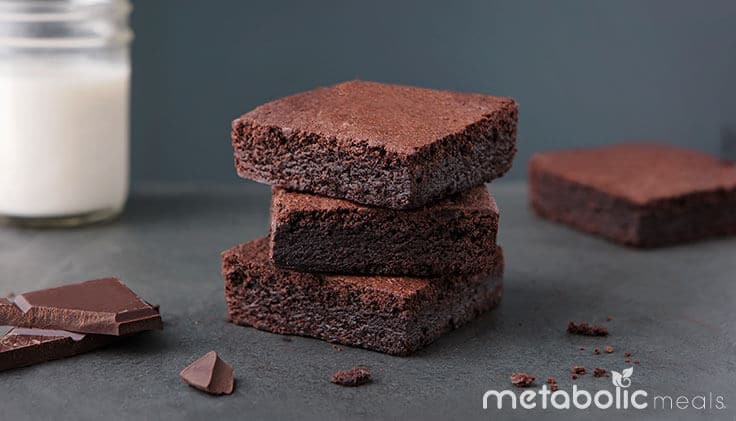ARTICLE AT A GLANCE
There’s a right way and a wrong way to cheat on your diet. It’s true that cheat meals can help you stay on top of your goals, but it’s easy to go overboard and undo the progress you’ve made. Learn about the Dos and Don’ts of indulging to avoid mistakes that will cost you. This blog explores:
If you’ve ever followed a structured diet program, you know that cheat meals can be both a blessing and a curse. These meals — or sometimes days — veer from your plans and contain foods you wouldn’t regularly include in your regimen, and if you’re not careful, they can set you back more than you bargained for.
There are different kinds of cheat meals, such as a clean cheat, a dirty cheat, or a re-feed. While they are all considered a cheat, they differ in one major way: They’re either calculated into your plan or they’re not. If you diligently count your macros every day, then your cheats or re-feeds are likely accounted for in your weekly numbers.
For example, if you eat 30 grams of carbs below your target for five days, you can have 150 grams of extra carbs on your sixth day. The same is true for fat calories; calculating in a deficit allows you more room for a cheat meal. A clean cheat would be foods like sushi, steak, and baked potatoes, which are higher in calories but also contain a variety of beneficial micronutrients.

Our Steakhouse Shredded Grass-Fed Beef with Cheesy Stuffed Twice-Baked Potato is an example of a clean, nutritious meal that feels indulgent while still being very macro-friendly: 330 Calories, 29g Protein, 22g Carbs, 14g Fat.
By contrast, dirty cheat meals are more likely to consist of things like pizza, fast foods, and other calorie-dense foods that lack any beneficial nutrient density. If this is an untracked cheat, it doesn’t account for the calories or macros that it contains.

It’s easy to justify poor eating choices by simply calling it a cheat — and that makes habitual dirty cheats dangerous.
Why the Best Cheat Meals Are Calculated
From your own perspective, the difference between clean cheat meals and dirty cheat meals is the time and effort that you put into planning them. A calculated cheat meal won’t throw you off your track to success because it’s incorporated into your overall nutrition plan. Studies show this level of dietary self-monitoring, is an important part of a successful diet
When you invest time and effort into planning out cheats, you have more freedom to incorporate things you normally wouldn’t, such as alcohol. Most 12-ounce servings of light beer, 5-ounce glasses of wine, single shots, and low-calorie cocktails typically fall into the range of 100 to 125 calories per serving. So if you substitute your calories properly, you’ll have room to enjoy a drink with your cheat meal.

If your cheat meals are dirty, though, you’ll use up extra calories before you realize it, and that drink could throw you further off track. Depending on how far off track, it could take a while to bounce back.
Accounting for your cheating is designed to give you the benefits of a cheat meal without the disruption to your diet. Once it’s over, the fact that you accounted for it will mean you won’t have to bounce back from it. Because it was calculated into your macros, the cheat meal will even out your numbers and keep you on track when the new week begins.
The Benefits of Clean Cheating
The major theme of a cheat meal is the higher number of calories you consume. When planning a clean cheat, consider things like micronutrients, phytochemicals, and fiber. Sushi is a good example because it can contain rice, omega-3 fatty acid-rich fish, avocado, and veggies.
If you lean more toward sweets when putting together your cheat meals, you can find plenty that are made from whole foods, such as sweet potato brownies and baked goods made from nuts or seed flours — think almond flour.

For example, our Cassava Fudge Brownies are made from tropical cassava root, rich dairy-free dark chocolate, cacao powder, free-range eggs and delicately sweetened with low-glycemic palm sugar. Our baked goods are the perfect example of a sweet “cheat” made from clean ingredients.
If you crave a cheeseburger, clean it up by adding lettuce, tomato, onions, and pickles to give it some fiber and micronutrients. There are also a variety of hamburger buns on grocery store shelves that will contain more fiber than normal.
Cheat meals offer several additional mental and physical health benefits as well. They can help you:
1. Break Up Your Routine
Successfully staying on track with your nutrition plan is largely a mind game, and many people fail simply because they get bored. The most successful plans are often simple ones, meaning there might not be a lot of variety in your meals from day to day. A cheat meal adds that variety to break up your routine and satiate cravings. The effort you put into planning it builds up your excitement, and the payoff is that much more rewarding, making your overall nutrition plan less mundane.
2. Socialize While Staying on Track

When you’re diligently sticking to a nutrition plan, going out and socializing over food and drinks isn’t always easy. If you plan for your cheat meal and drinks, however, you can enjoy your time with friends and family guilt-free. Depriving yourself of socializing in favor of a diet is worse than monotonous; it’s a common trigger for spiraling or quitting a diet altogether. Taking breaks to enjoy life is important both physically and mentally, especially if you account for them.
3. Optimize Your Metabolism
If you continuously restrict your calorie intake and go into deficit for long periods, your body’s production of the hormone leptin will decrease. This negatively impacts your hunger and appetite, making it more difficult to lose weight or achieve other fitness goals. When you break up the restriction with well-planned cheat meals, especially those higher in carbohydrates, you can maintain your body’s long-term leptin production. This assures your body that there is no real shortage of food and that it can ease up on natural protective mechanisms such as lowering its metabolism.
4. Lower Your Stress Levels
The longer you stick to a strict nutrition plan, the more stressful it can become, which means you might experience heightened levels of the stress hormone cortisol. A higher-calorie cheat meal can help reduce cortisol production and improve your mental clarity. Cheat meals take into account the physiological importance of leptin and cortisol on long-term weight loss and overall health. They remind your metabolism that it doesn’t need to remain slower so it can get back to performing efficiently.
Cheat meals can be an important part of a successful diet, but you shouldn’t use that excuse to eat as though your choices have no consequences. Your goal with cheat meals isn’t to undo all the hard work you put into your nutrition plan — it’s to boost those efforts in a fun, gratifying, and beneficial way.
Zac Bell is a Nutritional Health Coach at Metabolic Meals, supporting customers with their nutrition and fitness goals. Zac has a bachelor’s degree in Exercise Science.






